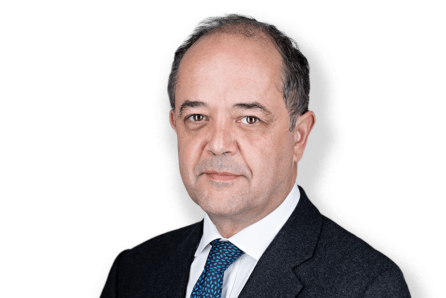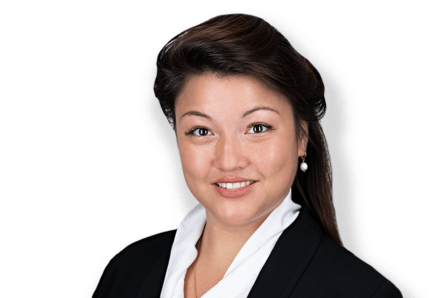18th January 2022
The UK Supreme Court Decision in “Guaidó Board” of the Central Bank of Venezuela v “Maduro Board” of the Central Bank of Venezuela [2021] UKSC 57
Introduction
- In a much anticipated chapter of the long-fought battle between the “Guaidó Board” of the Central Bank of Venezuela and the “Maduro Board” of the Central Bank of Venezuela for control over gold worth ca. USD 2 billions, the UK Supreme Court has given its Judgment just before Christmas. Nicholas Vineall KC, Joint Head of Chambers of 4 Pump Court, appeared for the Respondents (The Maduro Board) together with Sir Jeffrey Jowell KC, Professor Dan Sarooshi KC, Brian Dye, Jonathan Miller, Naina Patel and Mubarak Waseem (instructed by Zaiwalla & Co Ltd). The Guaidó Board was represented by Timothy Otty KC, Sir Daniel Bethlehem KC, Andrew Fulton KC and Mark Tushingham (instructed by Arnold & Porter Kaye Scholer LLP). The Secretary of State for Foreign, Commonwealth and Development Affairs intervened, instructing Sir James Eadie KC, Sir Michael Wood, Jason Pobjoy and Belinda McRae.
2. This post looks at this seminal and unanimous decision of the Supreme Court which raises “fundamental issues concerning the recognition of a foreign head of state, the foreign act of state doctrine and their inter-relationship”. [1] It also sheds light on the “one voice principle” and the concepts of “de facto” vs “de jure” recognition on which the Court of Appeal decision hinged. A post about the Court of Appeal decision including the factual background can be found here.
3. Two key (preliminary) issues before the Supreme Court were these:
a. The “Recognition Issue”: who does the UK government recognise as the head of state / head of government of Venezuela? The Court found that the UK government has unambiguously recognised Mr Guaidó as the interim President of Venezuela and that this statement was binding on courts in this jurisdiction. [101] The Foreign Secretary had intervened before the Supreme Court and affirmed this position.
b. The “Act of State Issue”: whether, should it be found that Mr Guaidó was the recognised head of state / head of government, the appointments made by Mr Guaidó would fall within the act of state doctrine and could therefore not be examined by the Supreme Court. The Court found that this issue raised the question of of whether the judgments of the Supreme Tribunal of Justice of Venezuela (the STJ) declaring the appointments a nullity should and would be given effect in this jurisdiction. In this case the statements of the Venezuelan executive and judiciary were not aligned and as this matter fell outside of the issues placed before the Supreme Court, this question was remitted back to the Commercial Court for further consideration.
I. The Recognition Issue
4. While the Court of Appeal was persuaded that the UK government’s recognition of Mr Guaidó as de jure President left open the possibility of still recognising Mr Maduro as de facto President, this was firmly rejected by the Supreme Court. It held that there was “no scope for the application of any notion of implied recognition by courts in this jurisdiction.” [98] As the UK government had in this case expressly recognized Mr Guaidó as Venezuela’s interim President, it was not for the courts to go behind this statement. Therefore “reliance by the Court of Appeal on the concepts of de jure and de facto recognition was also misplaced (…)”. [99] It is interesting to note here that the UK government’s policy on recognition has changed in the last decades moving to a position where it now in the main only recognizes states and not governments. However, there are exceptions to this general rule and the recognition of Mr Guaidó was such an exception.
5. The Judgment contains a useful overview of the evolution of the “one voice principle”. Its classic formulation is found in the speech of Lord Atkin in The Government of the Republic of Spain v SS “Arantzazu Mendi” [1939] AC 256, 264: “Our state cannot speak with two voices on such a matter, the judiciary saying one thing, the executive another. Our Sovereign has to decide whom he will recognise as a fellow sovereign in the family of states: and the relations of the foreign state with ours in the matter of state immunities must flow from that decision alone.” [69]
6. The Court concluded that: “In the United Kingdom it is for the executive to decide with which entities or persons it will have relations on the international plane. Where the executive makes an express statement of recognition of a government or head of state the courts will speak with the same voice, in accordance with the one voice principle.” [79] As the government had given a clear statement of recognition and indeed intervened to make its position clear, the Court was satisfied that Mr Guaidó had effectively been recognized.
II. The Act of State Issue
7. The conclusion on the first issue meant that the appointment of public officials, including the appointment of Guaidó Board, were sovereign acts of the Venezuelan state. The Guaidó Board argued that therefore, the validity of these appointments under Venezuelan law could not be examined by the court pursuant to the “act of state doctrine”.
8. Relevantly for this case, this doctrine has been accepted to encompass the following two aspects as set out by Lord Neuberger in Belhaj v Straw [2017] UKSC 3, [2017] AC 964:
“(1) The first rule (“Rule 1”) is that the courts of this country will recognise and will not question the effect of a foreign state’s legislation or other laws in relation to any acts which take place or take effect within the territory of that state ([2017] AC 964, para 121).
(2) The second rule (“Rule 2”) is that the courts of this country will recognise, and will not question, the effect of an act of a foreign state’s executive in relation to any acts which take place or take effect within the territory of that state (at para 122).”[113]
9. The Guaidó Board relied especially on Rule 2 and the focal point for the case were the appointments of the Special Attorney General and the appointment of the ad hoc board of the Central Bank of Venezuela (the BCV). Both of these appointments had been declared unconstitutional and of no legal effect by the STJ. [117]
10. The Court was thus faced with the difficult question of “whether courts in this jurisdiction are obliged to give effect to an executive act of a foreign state notwithstanding that it is unlawful by the law of that state”. [119, 161] This point was left open in Belhaj.
11. The Supreme Court was grappling with this lacuna.
a. It affirmed the strength of Rule 2 and the “municipal law act of state” doctrine, i.e. “that the English Courts will not adjudicate the lawfulness or validity of a state’s sovereign acts.” [121] It also found that appointments such as the ones relied on by the Guaidó Board were covered by this rule [146] and that this rule applied also in situations where the effects of the appointments was felt in another jurisdiction. [149]
b. However, the Court also found that the simple conclusion that it could not comment on the appointments of the Guaidó Board at all was not satisfactory as such an application of Rule 2 failed to take into account the fact that the appointments had been held to be a nullity according to the highest Court within Venezuela itself.
12. This dilemma was described thus by the Court:
“The present case is indeed unusual by comparison with other cases which raise issues of justiciability in that here both the executive and judicial branches within Venezuela have spoken. Mr Guaidó, recognised by HMG as the President of Venezuela, has made appointments to the board of the BCV which the STJ, as a part of the judicial branch of government, has declared to be unlawful and of no effect. As a result, this court is confronted with conflicting positions adopted by the executive and the judiciary of Venezuela. The question arises, therefore, whether in such circumstances the foreign act of state doctrine in the form of Rule 2 requires courts in this jurisdiction to defer to acts of the executive of a foreign state, in priority to recognising the rulings of its judiciary.” [156]
13. The Court concluded that in such a situation it was not obvious that the executive act should be treated with automatic deference and that it would not be contrary to the principle of comity to give effect to a foreign judgment. [169] Therefore, it concluded that this issue hinged on the status of the STJ judgments and remitted this issue back to the Commercial Court as this point fell outside the issues put before the Supreme Court. However, the Court emphasized that effect could only be given to the STJ judgments to the extent that this would not conflict with the recognition of Mr Guaidó as interim President. [177]
14. The Guaidó Board was thereforenot successful on this second issue and the question of whether the STK judgments should be recognized or given effect in this jurisdiction will be examined by the Commercial Court.
III. Key Take Aways
15. The judgment deals with many important principles and its effect is bound to go far beyond the present case. Three points appear particularly salient:
a. Firstly, recognition statements (of governments) by the UK government are of paramount importance when analysing issues of recognition. They will take precedence over any implications that could be derived from conduct. A clearly expressed intention of recognition will trump conduct. [80] Therefore there will be no room for an analysis of implied recognition / de facto rule where a clear statement of recognition exists.
b. Secondly, the “one voice principle” is alive and well. The courts in this jurisdiction will defer to a clear expression of recognition by the executive.
c. Thirdly, the “act of state doctrine” is even more complex than previously appreciated.
i. The Court affirmed Rule 2 and that in general the courts of this jurisdiction would not sit in judgment as to the validity of executive acts of foreign states;
ii. However, it also highlighted that complexity was added to the situation if both the executive and the judiciary had pronounced themselves on an issue and their statements were in conflict. It was conceivable and in line with comity that such foreign judgments could be given effect in this jurisdiction and hence a further analytical step as to the effect of such foreign judgments was needed.
16. It will be very interesting to see how the Commercial Court resolves the questions in relation to the effect of the STJ judgments. Stay tuned.
Would you like to know more?
For help and advice talk to a member of our clerking team. They can advise on the best options for your matter.
Call: +44 (0) 20 7842 5555



